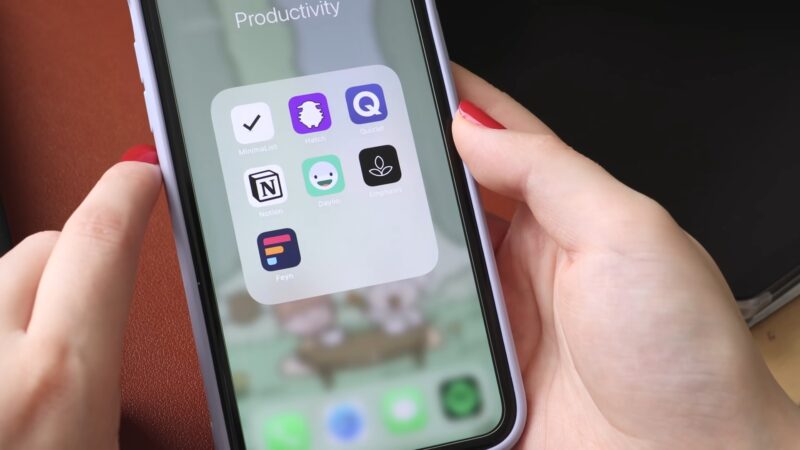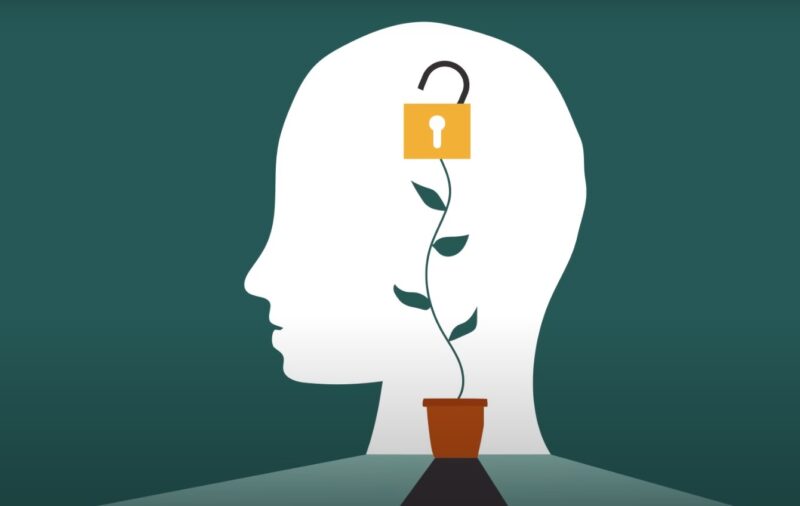In today’s fast-paced world, the ability to learn and adapt is pivotal. Whether you’re a student preparing for exams or a professional looking to pick up a new skill, having effective study habits can greatly enhance your retention and understanding of information.
This article will shed light on some of the most effective study habits you can cultivate to bolster your learning experience.
1. Creating a Productive Environment

Studying requires concentration, and the setting in which you choose to learn can either aid or hinder your study sessions. A productive environment sets the stage for effective learning.
Choosing the Right Location
Location, location, location! Finding the right spot to study is crucial to ensure minimal distractions and maximal concentration.
- Quiet Places: Libraries, quiet coffee shops, or a secluded spot in your home can be ideal.
- Avoid High Traffic Areas: Stay away from places with lots of movement or noise, like busy living rooms or cafeterias.
- Comfort Matters: Ensure you’re comfortable but not too relaxed. A good chair and desk can make a world of difference.
Organizing Your Study Space
Having an organized study space isn’t just about cleanliness, but it’s also about having everything you need within arm’s reach.
- Stationery Essentials: Pens, highlighters, notebooks, and sticky notes should be readily available.
- Tech Tools: Ensure your computer, tablet, or other devices are fully charged and have all necessary software/apps.
- Minimalism Works: Keep only what you need on the desk. A cluttered space can lead to a cluttered mind.
2. Implementing Active Learning Strategies
Gone are the days when rote memorization was the only technique employed. Active learning strategies can drastically improve your retention and understanding of material.
Summarizing and Teaching
One of the best ways to test your understanding of a subject is to explain it to someone else.
- Teach a Peer: If you can explain a topic to a friend or classmate, you’ve likely grasped it.
- Write Summaries: At the end of each study session, jot down a brief summary of what you’ve learned.
Employing the Feynman Technique
Named after physicist Richard Feynman, this technique is about breaking down complex ideas into simple terms.
- Choose a Concept: Start with something you want to understand better.
- Pretend to Teach a Child: Explain this concept as you would to a child, using simple language and analogies.
- Review and Refine: If you stumble or find gaps in your explanation, revisit your source material.
3. Using Technology Wisely

In the digital age, technology offers numerous tools to aid studying, but it’s essential to use them judiciously.
Digital Flashcards
Flashcards have always been a great way to memorize, but digital ones offer advantages traditional cards don’t.
- Spacing Effect: Apps like Anki and Quizlet leverage the spacing effect, presenting cards just as you’re about to forget them.
- Multimedia: Incorporate images, sounds, or even videos into your cards to make them more engaging.
Limiting Digital Distractions
While technology is a boon, it can also be a significant source of distraction.
- Use Productivity Apps: Tools like “Forest” or “Pomodoro timers” can help maintain your focus.
- Turn Off Non-Essential Notifications: Make sure only the most critical alerts can interrupt your study session.
4. Emphasizing Health and Wellness

Your mental and physical health plays a significant role in your ability to study effectively. Ignoring them can be detrimental.
Prioritizing Sleep
Sleep isn’t merely a break for your brain—it’s when a lot of essential processing and consolidation happens.
- Consistent Sleep Schedule: Try to go to bed and wake up at the same time every day.
- Quality Over Quantity: Aim for 7-9 hours of good quality sleep. Ensure your bedroom is dark, quiet, and cool.
Incorporating Physical Activity
Physical movement isn’t just good for the body—it’s beneficial for the brain as well.
- Regular Breaks: Take short breaks to stretch or walk around during study sessions.
- Engage in Aerobic Activities: Studies have shown that activities like running or cycling can boost brain health and cognitive abilities.
5. Harnessing Mindfulness and Meditation
In an age of constant distraction, honing the ability to focus on the present moment can significantly improve concentration and understanding.
Benefits of Mindfulness in Studying
Mindfulness isn’t just a buzzword—it has tangible benefits, especially for learners.
- Enhanced Concentration: Mindfulness can help increase your attention span, making it easier to study for longer periods.
- Reduced Anxiety: It can also help in reducing test-related stress and anxiety, leading to better performance.
- Improved Memory: Regular mindfulness practices have been linked to improved memory retention.
Simple Meditation Techniques for Beginners
Starting with meditation doesn’t require hour-long sessions. Even a few minutes can make a difference.
- Breathing Meditation: Focus on your breath. Inhale deeply and exhale slowly, concentrating solely on the sensation of breathing.
- Guided Meditation: Apps like Headspace or Calm provide guided sessions, perfect for beginners.
- Progressive Relaxation: Tense and then relax each muscle group in your body, starting from your toes and moving up.
6. The Power of Community

Studying doesn’t always have to be a solitary activity. Engaging with others can provide motivation, fresh insights, and clarification on challenging topics.
Study Groups: Strength in Numbers
Study groups can be a potent tool if used effectively.
- Diverse Perspectives: Different members can bring varied viewpoints, helping in understanding a topic holistically.
- Teaching and Learning: Explaining complex topics to peers or having them explain to you can deepen understanding.
- Accountability: Regular group sessions can keep you on track and motivate you to stay prepared.
Online Learning Communities
The internet provides a plethora of platforms where learners from around the world can connect and collaborate.
- Forums and Websites: Platforms like Stack Exchange, Reddit, or specialized forums can be goldmines for information and assistance.
- Webinars and Online Workshops: Engage in online classes or webinars. They often provide opportunities to interact and ask questions.
- Feedback Loop: Share your notes, essays, or projects online to get feedback from the global community.
7. Reflecting and Adjusting
The path to mastery isn’t linear. It’s essential to consistently evaluate your strategies and make necessary adjustments.
Reviewing Your Progress
It’s beneficial to periodically take a step back and assess how far you’ve come and what needs tweaking.
- Journaling: Maintain a study journal. Note down what’s working, what’s not, and how you feel.
- Self-Assessment: Take mock tests or quizzes to gauge your understanding of subjects.
- Feedback: Ask teachers, mentors, or peers for feedback on your performance and areas of improvement.
Adapting Your Strategies
As you evolve as a learner, your study methods should evolve, too.
- Try New Techniques: If a particular strategy isn’t yielding results, try something new.
- Stay Updated: The world of learning and education is continually evolving. Stay updated with the latest research and methodologies.
- Set New Goals: As you achieve your milestones, set newer, higher goals to keep the momentum going.
8. Embracing a Growth Mindset

A growth mindset, coined by psychologist Carol Dweck, is the belief that abilities and intelligence can be developed through dedication and hard work.
The Value of a Growth Mindset
Understanding the concept and its benefits can help shift one’s perspective toward challenges and failures.
- Embracing Challenges: Individuals with a growth mindset are more likely to tackle obstacles head-on, viewing them as opportunities to learn.
- Resilience Amidst Failures: Instead of getting demotivated by setbacks, they view them as essential feedback.
- Continuous Learning: They harbor an innate love for learning, understanding that mastery takes time.
Cultivating this Mindset
While some may naturally incline towards a growth mindset, others can cultivate it with conscious effort.
- Positive Self-talk: Replace thoughts like “I can’t do this” with “I can’t do this yet.”
- Celebrate Small Wins: Every achievement, no matter how minor, is a step towards your goal.
- Feedback is Gold: Seek feedback actively and use it as a tool for improvement, not as criticism.
9. Time Management: The Backbone of Effective Study
Managing one’s time effectively can make the difference between cramming last minute and a well-prepared study session.
Importance of Time Management
Time, once gone, never comes back. Utilizing it efficiently can lead to better outcomes.
- Less Stress: Efficient time management means less last-minute hustle and reduced anxiety.
- Higher Quality Work: Spreading study sessions over time allows for better understanding and retention.
- Balanced Life: It also ensures there’s time for relaxation, hobbies, and socializing.
Techniques to Manage Time
Several time-tested strategies can help in better organizing your study sessions.
- The Pomodoro Technique: Work for 25 minutes and take a 5-minute break. Repeat.
- Time Blocking: Allocate specific blocks of time for specific activities throughout the day.
- Priority Lists: Determine what needs immediate attention and what can wait. Stick to the list.
10. Continuous Feedback and Iteration

Learning is a cyclic process. Taking feedback and iterating based on it can significantly improve one’s study outcomes.
The Cycle of Feedback
Understanding the continuous loop of learning, feedback, and improvement is vital.
- Active Feedback Seeking: After a study session, test yourself or ask peers to assess you.
- Constructive Criticism: Learn to differentiate between constructive feedback and plain criticism.
- Immediate Action: Once feedback is received, act on it immediately to reinforce the learning.
Iteration: The Path to Perfection
Iteration is about continually refining your methods based on feedback.
- Adjustment: Modify your study techniques if they aren’t yielding the desired results.
- Experimentation: Sometimes, trying unconventional methods can lead to breakthroughs.
- Persistence is Key: Iteration requires patience and persistence. The goal is long-term improvement.
11. Setting Clear and Achievable Goals

While the journey of learning is vital, having a clear destination in mind ensures you’re headed in the right direction.
The Importance of Goal Setting
Goals serve as both motivation and a roadmap for your study sessions.
- Direction: With a clear objective, your study sessions become more purpose-driven.
- Motivation: Achieving small goals can provide a confidence boost, propelling you forward.
- Measurable Progress: By setting benchmarks, you can tangibly measure how far you’ve come.
SMART Goals for Effective Learning
The SMART framework ensures goals are Specific, Measurable, Achievable, Relevant, and Time-bound.
- Specificity: Instead of “I want to study more,” aim for “I want to study 3 hours daily.”
- Measurability: Set goals you can measure, like completing a specific number of chapters in a week.
- Time Constraints: Assign deadlines. This creates a sense of urgency and reduces procrastination.
12. The Role of Curiosity in Learning

Beyond structured study habits, an innate sense of curiosity can significantly amplify the learning experience.
Embracing Inquisitiveness
The desire to know more can make the difference between rote learning and deep understanding.
- Ask Questions: Always question why something works the way it does.
- Go Beyond the Syllabus: If a topic piques your interest, dive deeper, even if it’s not part of your curriculum.
- Stay Open-minded: Be receptive to new ideas, even if they challenge your existing beliefs.
Fostering a Curious Mindset
While some are naturally curious, it’s a trait that can be nurtured and developed.
- Diverse Reading: Don’t limit yourself to textbooks. Read articles, blogs, and books outside your domain.
- Engage in Discussions: Talking to peers or experts can provide fresh perspectives and insights.
- Travel and Explore: Experiencing new cultures, places, and ideas can broaden your horizons and fuel curiosity.
FAQs
Are there any specific times of the day that are generally considered better for studying?
Yes, some people find studying during the early morning hours beneficial because of the reduced distractions and a fresh mind.
Others prefer the evening when their daily commitments are over. It’s essential to identify when you’re most alert and least distracted and schedule study sessions during those hours.
Can music aid in studying, or is it considered a distraction?
This is subjective. Some individuals find that certain types of music, like classical or instrumental, can enhance concentration and make the study session more enjoyable.
However, others might find music distracting, especially if it has lyrics. It’s essential to experiment and see what works best for you.
How important is it to take breaks during study sessions?
A: Very important. Studies have shown that periodic breaks can actually enhance overall productivity and improve concentration. This is the foundation of techniques like the Pomodoro Technique, where short, focused work sessions are interspersed with breaks.
How can one handle subjects or topics they find particularly challenging or uninteresting?
For challenging subjects, breaking the content down into smaller, more digestible chunks and then approaching them step by step can be helpful. Using visual aids, mnemonics, or real-life applications can make understanding easier.
For uninteresting topics, try to relate the content to real-world applications or your interests to make it more engaging.
Is multitasking effective when studying?

Typically, no. While people believe they can manage multiple tasks simultaneously, research has shown that multitasking often reduces the quality of work and stretches the time taken for each task.
It’s usually more effective to focus on one subject or topic at a time and then move on to the next.
Are there any foods or drinks that can boost cognitive abilities during study sessions?
Yes, certain foods and drinks have been linked to improved cognitive function. These include blueberries, dark chocolate, nuts, seeds, and green tea.
Omega-3 fatty acids found in fish like salmon can also help boost brain function. However, it’s essential to consume them in moderation and as part of a balanced diet.
Final Words
Successful studying isn’t just about ticking boxes or getting through material—it’s about immersing oneself in the joy of understanding and discovery. Each of the habits discussed offers a facet to this intricate art.
While this isn’t an exhaustive list, incorporating these habits can set you on a path to more enriching and effective learning experiences. So, get curious, set goals, manage your time, and dive into the world of knowledge with renewed vigor and passion!
We’ve recently written about what AP exam is the hardest, so make sure to check it out.
